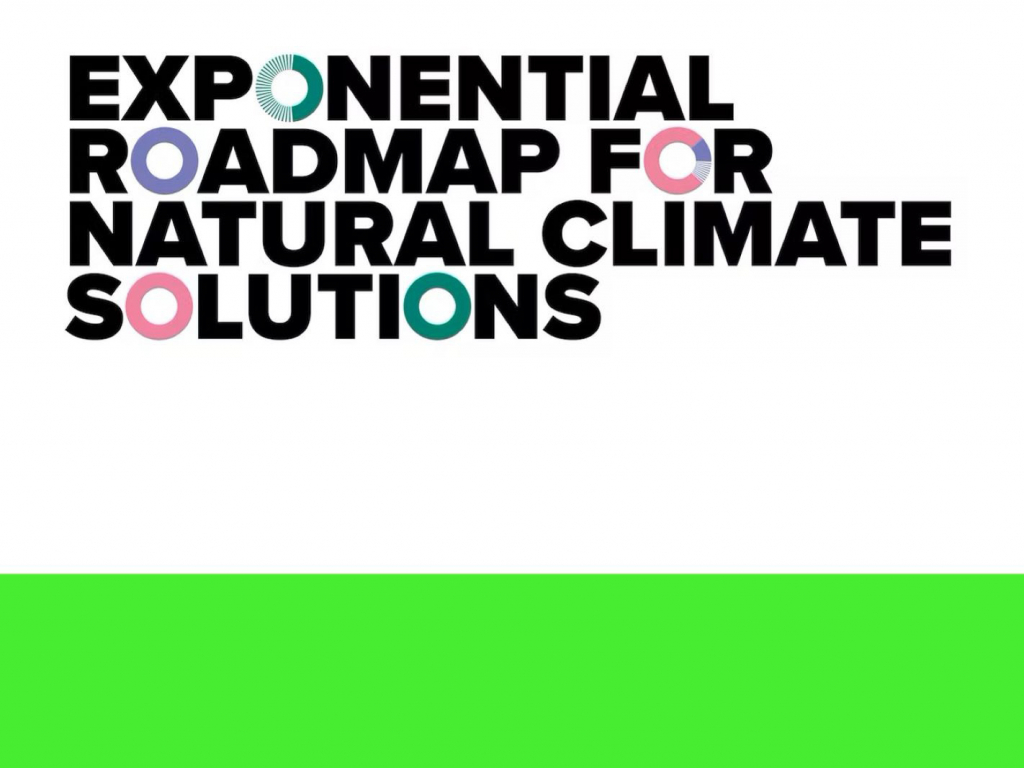Exponential Roadmap for Natural Climate Solutions

Scientists from Conservation International and the Potsdam Institute for Climate Impact Research have released the Exponential Roadmap for Natural Climate Solutions; a report for maximising nature’s role in tackling global warming. It provides guidance for who, where and how fast action must be taken to protect, manage and restore nature to avoid the irreversible impacts of climate change.
The roadmap aims to set out plans for the acceleration of emissions reductions and boosting natural carbon sinks through better stewardship of natural and working landscapes. It states that to avoid worst case scenarios of catastrophic climate change, the land sector, including agriculture and forestry, must reach net zero emissions by 2030. It takes people who live and work on the land as a focus for where there needs to be accelerated nature’s contributions to climate mitigation, in line with the Carbon Law for Nature.
The Carbon Law, proposed in 2017, states that to keep climate warming “well below” 2°C, emissions should have peaked in 2020 and then halve each decade to reach net zero by 2050. Given that protecting and restoring nature is essential to reaching this goal, the roadmap establishes a new “Carbon Law for Nature” – a benchmark for emissions from the land sector each year. The rate of 12.5 Gt of greenhouse gas emissions released each year from humanity’s use of land would need to reduce to net zero by 2030, a 5 Gt sink by 2040 and a 10 Gt sink by 2050, in order to meet the Carbon Law for Nature’s proposed limits.
The roadmap then provides pathways to reach net zero emissions from the land sector by 2030, via providing communities with resources to support land stewardship, countries with the knowledge to identify and activate the climate potential of their domains, and companies and financiers with clear paths to invest in climate solutions. Roadmap Steps include:
- Scale up actions that protect, restore and improve nature’s ability to store carbon.
- Transform what we eat and how we grow it.
- Rapidly scale low-cost, centuries-old practices in land management.
- Reverse agriculture-related deforestation in supply chains
Learn more in the Exponential Roadmap for Natural Climate Solutions.




